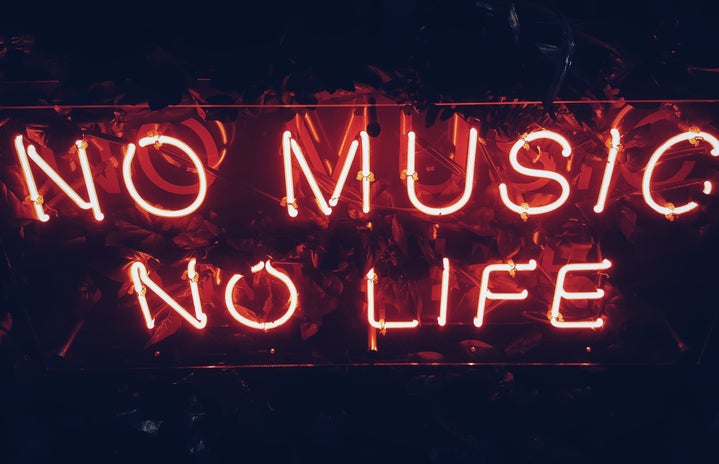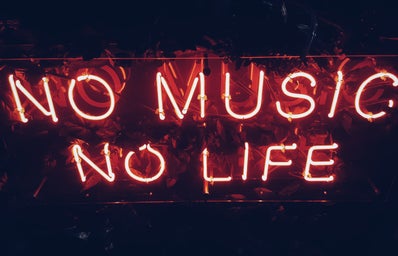My name is Genesis. It means “Beginning” or “Creation” and in its earliest form, is the first book of the Bible. Because of this, (predominately older) people often assume I came from a Christian family. And that’s where I kindly respond that I’m not.
I have Afrocentric, vegetarian/pescatarian parents with long flowing locs adorning their backs. I grew up listening to the hegemony-defying, cool-rhythm genre of Reggae at home.
My father is Rasta and my mother considers herself “Rasta-adjacent” (she has the look and philosophies, but just doesn’t ascribe to the identity).
I knew Rastafari culture fared far and wide, specifically through the way Reggae rebelled against all odds in its global impact, stemming from the small, beautiful island of Jamaica. I grew up on it. My senior quote was a Bob Marley quote. His face appears two times in my college bedroom. I have two reggae playlists on Spotify titled, “EGBA” (Everything’s Gonna Be Alright), and “reggae songs that’ll make your locs grow faster”.
So, when I enrolled in Temple University’s course studying Punk, little did I know that Rasta and Reggae culture greatly impacted the development of the Punk subculture. The cultures and music seemed wildly different to me, at least in sound. But when I sat, studied and listened, I realized how similar the two are, and how they bounced off each other to create a message of revolution and non-conformity.
Recently, I watched the Bob Marley biopic, “One Love”- spoiler alert! In the middle of the film, Bob has to live in England for a few years following an assassination attempt. In the first scene, Bob exits the London tube. The camerawork clearly adds focus to the mohawk, mullet, and pinned-up Punks he passes. In the next scene, Bob and some Wailers are at a Punk music venue where, assumingly, The Clash is playing “White Riot”. Impeccable choice, as this song compares the Black and white response to dealing with hegemony and oppression.
Bob watches, telling his bandmates, “Dem a rebel, yu know. But dem no sing ‘bout Rasta. Dem rock the English monarchy”. He’s interrupted after a supposed skinhead bumps into him, trying to start a fight.
While not shown in the biopic, Bob Marley didn’t just observe the new scene at the time, he actually made a song of his own in response, called “Punky Reggae Party”.
After, listening to The Clash’s rendition of “Police and Thieves”, originally a Reggae song by Junior Murvin, Bob recorded “Punky Reggae Party” and paid his respects to “The Jam, The Dammed, and The Clash”, all pioneer bands in Punk music.
Although Punk’s origins may be traced back to the United States, many young working-class Brits, tired of false promises, assumed the attitude, fashion and music tastes that came with the subculture.
Bob witnessed this and labeled it a “new wave, new craze” in his song. He empathized with these young Brits, acknowledging how they were “rejected by society” and “treated with impunity”.
Since the 70s and onward, the sounds and rhythms of Reggae have integrated into various aspects of the Punk musical ethos.
In true Jamaican timing, Bob Marley built a bridge between two groups of people with similar outlooks, but different walks of life. I see this as a moment that can be defined by the Iyaric/Dread Talk (also known as the language of Rastafari) phrase, “I and I”.
“I and I”, pronoun, origin – Jamaica, translation – “we”/”Jah is within all”/”You and I united by Jah”. “I and I”- A holistic term encapsulating one people.
The Abyssinians said “I and I” to describe unity and solidarity to “a better situation”. Bob Marley and The Wailers said “I and I are the roots”, tying together Rastas marching forward through this harsh world.
However, in 1976, across the pond, DC-based Hardcore Punk band, Bad Brains, turned the unifying phrase on its head. “I Against I”.
From what I’ve seen, Punk’s lyrical pessimism towards society and life differentiates the genre from others. There is no hope. Our society cherishes selfishness, competition, and violent domination over one another. Rather than using the idealism of “I and I”, Bad Brains slaps it around:
“In the quest for the test to fulfill an achievement // Everybody’s only going to pursue themselves // When the fact of the matter is they just don’t care // To extend a helping hand to anyone else”
Still, this is no detraction from Rastafari philosophies, as the same detestment for the US and the West still stands. You may hear this in Reggae being referred to as “Babylon”.
“So tell me why did you have to lie // And try to make me all confused about the USA?”
Rasta philosophical phrasing is consistent in the Bad Brains, even when some band members revolved. In Bad Brain’s release, “Rise”, their title track for their fifth album, new lead vocalist Israel Joseph I sings “Rise Up” in the chorus. Another phrase often heard in Jamaican and Rasta vernacular.
As “I Against I” continues, there’s a slightly pleading tone echoing in the chanting chorus of “I Against I”. In a nation that cherishes Darwin’s “survival of the fittest”, Bad Brains simply does not fit, sounding Punk enough.
“I don’t wanna have I go against I // Well, I don’t wanna have to go against I”
What I hear is: I don’t want to go against one another. It seems that we do not stand united under Jah.
“Almighty watching, almighty watching // I against I against I against I against I (hoo!) // And I say I don’t like it and I know I don’t want it // I against I against I against I against”
Bad Brains is regarded as one of the pioneers of Hardcore Punk, inciting faster, harder, and more aggressive sounds than Punk sounds before it.
With the domineering musical effect comes their most pointed lyrics within the song.
“I said who’s gonna tell the youth about the drugs // About the drugs, mugs, bugs, and the police thugs // And the rotten stinkin’ rackets and the fantasies // Around the nation, around the nations”
They seek to be truth-tellers.
“I tell you the truth is looking straight at you // Oh, baby, baby, what are you gonna do?”
With no prior knowledge, one may think the initial sound of Bad Brains would be Reggae, considering their face-value aesthetic, like their long locs flying around while performing. However, Bad Brains, in my opinion, did not care about what genre they would be classified in. They did it all.
Utilizing the philosophical and spiritual patterns of Rastafari, and the harsh, in-your-face tones of Punk, Bad Brains staked a claim as one of Punk’s first Black bands with their message and style becoming a consistent characteristic of Punk music.
Ultimately, Punk and Reggae are just another example of the connection in all things, no matter the differences. Hopefully, “I and I” will see more connections form to a more loving and generous world.


